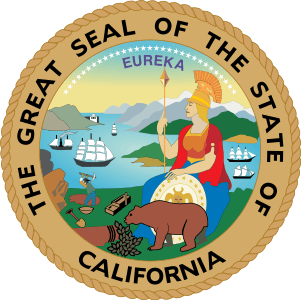California's 11th State Senate district
California's 11th State Senate district is one of 40 California State Senate districts. It is currently represented by Democrat Scott Wiener of San Francisco.
| California's 11th State Senate district | |||
|---|---|---|---|
.svg.png) | |||
| Current senator |
| ||
| Population (2010) • Voting age • Citizen voting age | 930,853[1] 798,616[1] 663,732[1] | ||
| Demographics | |||
| Registered voters | 568,370[2] | ||
| Registration | 59.86% Democratic 6.99% Republican 28.93% No party preference | ||
District profile
The district encompasses the northern San Francisco Peninsula, including the consolidated city-county of San Francisco and extreme northern San Mateo County.
|
All of San Francisco County San Mateo County – 17.5%
|
Election results from statewide races
| Year | Office | Results |
|---|---|---|
| 2018 | Governor | Newsom 85.7 – 14.3% |
| Senator | Feinstein 64.4– 35.6% | |
| 2016 | President | Clinton 85.0 – 10.0% |
| Senator | Harris 77.0 – 23.0% | |
| 2014 | Governor | Brown 87.7 – 12.3% |
| 2012 | President | Obama 83.1 – 13.6% |
| Senator | Feinstein 88.2 – 11.8% |
Election results
2016
| Primary election | ||||
|---|---|---|---|---|
| Party | Candidate | Votes | % | |
| Democratic | Jane Kim | 118,582 | 45.3 | |
| Democratic | Scott Wiener | 117,913 | 45.1 | |
| Republican | Ken Loo | 25,189 | 9.6 | |
| Democratic | Michael A. Petrelis (write-in) | 4 | 0.0 | |
| Total votes | 261,684 | 100.0 | ||
| General election | ||||
| Democratic | Scott Wiener | 209,462 | 51.0 | |
| Democratic | Jane Kim | 201,316 | 49.0 | |
| Total votes | 410,778 | 100.0 | ||
| Democratic hold | ||||
2012
| Primary election | ||||
|---|---|---|---|---|
| Party | Candidate | Votes | % | |
| Democratic | Mark Leno (incumbent) | 118,023 | 82.0 | |
| Republican | Harmeet Dhillon | 25,828 | 18.0 | |
| Total votes | 143,851 | 100.0 | ||
| General election | ||||
| Democratic | Mark Leno (incumbent) | 303,241 | 84.7 | |
| Republican | Harmeet Dhillon | 54,887 | 15.3 | |
| Total votes | 358,128 | 100.0 | ||
| Democratic hold | ||||
gollark: You fix them.
gollark: There's a spec somewhere, it could actually be implemented.
gollark: They call it "pseudocode" but it's really a bizarre BASIC language with a syntax based type system somehow.
gollark: The computer science exam board here uses BASIC to explain algorithms and stuff on exams, and requires you to write in it a bit.
gollark: What if you implement gravel with a Python frontend which compiles it to bytecode and a Rust bit which interprets the bytecode?
See also
- California State Senate
- California State Senate districts
- Districts in California
References
External links
This article is issued from Wikipedia. The text is licensed under Creative Commons - Attribution - Sharealike. Additional terms may apply for the media files.
